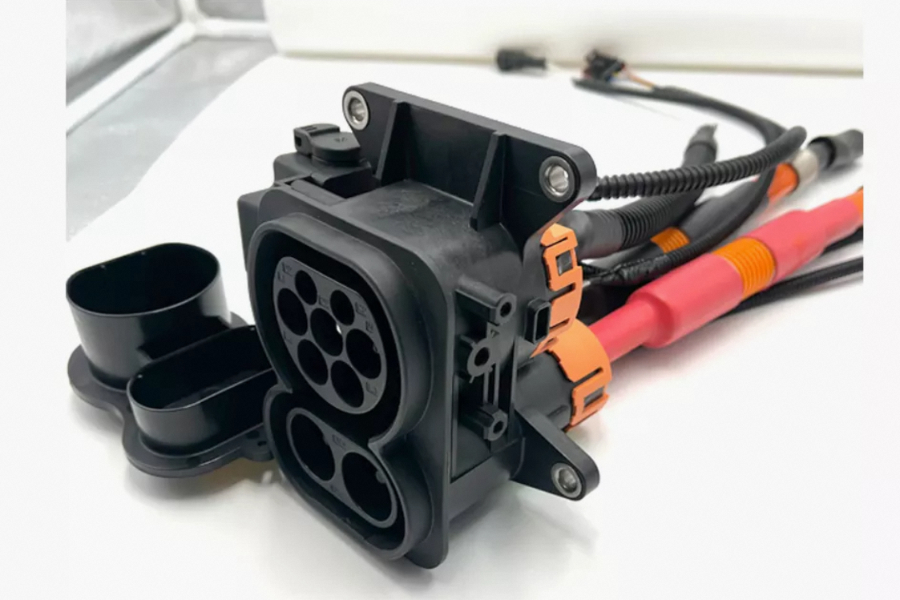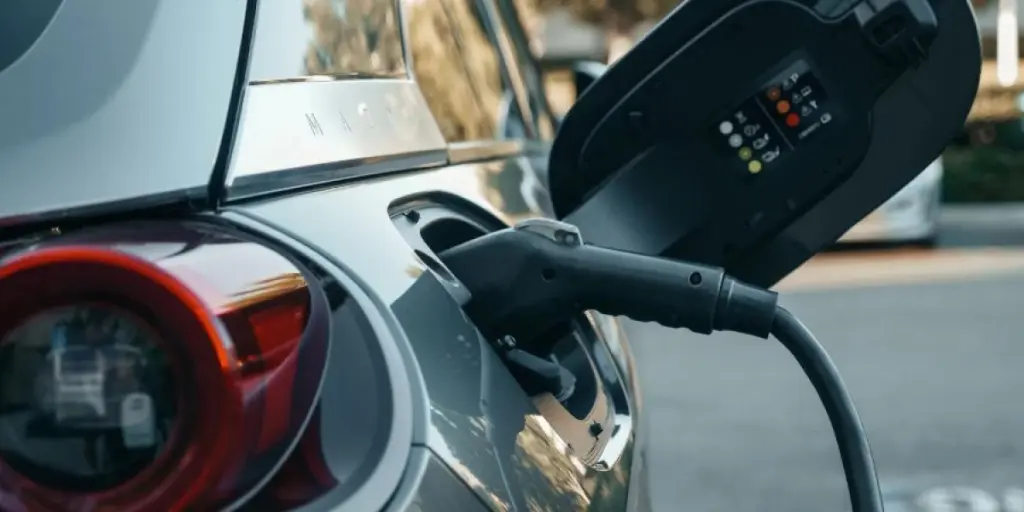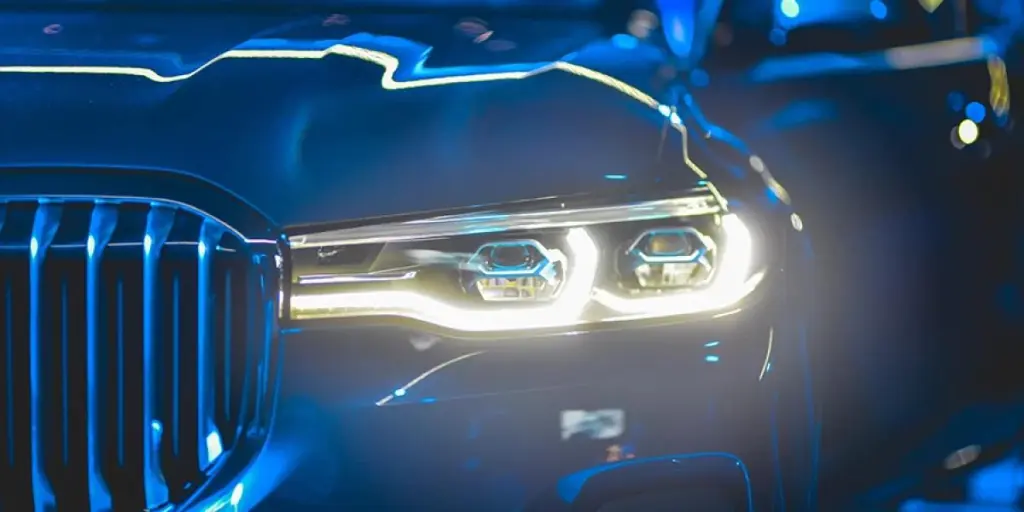Electric cars are becoming popular these days, and with the government’s plan to ban sales of petrol and diesel cars by 2035, it is the best time to keep up to date and learn more about electric vehicles.
This blog will take you through the basics of electric vehicles and discuss the business potential of the EV market.
Table of Contents
The business potential of electric cars
The working mechanism of electric cars
The factors to consider before buying electric cars
Conclusion
The business potential of electric cars
Before diving deep into the working mechanics of electric cars, understanding their business potential can be huge.
For a basic overview, the global electric vehicle or EV market is projected to reach about $823.75 billion by 2030. In other words, the market is expected to grow at a CAGR of 18.2% in 2021-2030.
The factor that contributes towards this expected growth is consumers’ awareness of hazardous byproducts emitted to the environment by standard petrol and diesel-run vehicles.
Also, electric vehicles are cost-effective, with a higher ROI than standard fuel-run vehicles. Moreover, the components that make up electric vehicles, like EV batteries, charging connection types, electric motors, etc., are also valuable in the market.
The working mechanism of electric cars
With the constant use of petrol and diesel car engines, it may feel pretty new when introduced to the working mechanism of electric cars.
A typical electric vehicle combines rechargeable batteries and an electric motor to power the car wheels. So, once the driver presses the accelerator, the power stored in the batteries is sent to the motor.
To make things even easier, here are all the components of an electric car:
Electric motor

An electric motor is usually found under the car bonnet, and it sends power to the drivetrain. As a result, the wheels turn wherever the driver presses the accelerator. Typically, most electric motors are mainly in alternative current (AC). However, some manufacturers and suppliers may provide direct current (DC) types.
Rechargeable batteries
Rechargeable batteries are the hub of stored energy in an electric car. Whenever the car is plugged in for charging, it takes and stores power from the national grid. An EV battery is measured in kilowatt-hours (kW), most of which are lithium-ion. And that’s because this battery is the best for storing charge and providing powerful output. Also, the higher the kW of an EV battery, the longer the car’s mileage.
EV inverter
An EV inverter is present to convert DC into AC. Even though this is not found in some electric cars, it all depends on the nature and performance of the electric motor. However, an EV inverter is useful in certain unforeseen situations and shouldn’t be overlooked when selecting an electric car.
Drivetrain
The drivetrain is the catalyst piece of an electric car that sends power to either two or all four wheels. Most electric vehicles have a single-speed transmission and a drivetrain system.
Charging port

An electric vehicle is not complete without its charging port—which allows for connecting the electric cars to charging stations. The thing remember about an electric vehicle’s charging port is that it comes in different types. The most common one is the standard three-pin plug, either socketed or tethered. In addition, various cars can provide charging from slow to rapid speeds. So, it all depends on the electric vehicle manufacturers.
The factors to consider before buying electric cars
Buying an electric car is new and it looks like a big deal today. However, it was similar to how consumers brought the first-ever invented automobile back in the day.
Hence, it is easier to keep these factors in mind when selecting the right electric car without getting overwhelmed by a lot of choices:
Understand the ROI over time
The first point is purely psychological. And it proves that electric vehicles have way better ROI over time than their diesel and petrol-powered counterparts. Typically, electric cars are expensive and require higher cost upfront, but the electric vehicle’s low running and maintenance costs ensure that it offsets the initial investment.
For example, using a journey cost calculator, two new Hyundai vehicles are compared:
First is the Hyundai IONIQ Electric, which runs 1,000 miles per month. This vehicle is estimated at $10 fuel per mile and $1,197 annual fuel costs. Compare that to a Hyundai i30 that runs on PMS (1,000 miles per month). This vehicle is estimated at $24 fuel per mile and $2,924 annual fuel costs.
This example shows that you can save up to $1,727 annually if you choose electric cars over petrol. In short, when it comes to the long-term game, electric cars are worth the investment.
Charging time
It is important to know that the charging time for an electric vehicle depends on the charging connection type, power outlet, and the size of the EV batteries. For instance, a slow charge type with a standard three-pin plug takes up to 8 -10 hours for a full charge. On the other hand, a fast charge type with a socketed connector takes up to 3 – 4 hours for a full charge. And a rapid charge type with a socketed and tethered connector takes only 30 minutes to 1 hour for a full charge.
Battery capacity determines the mileage
Electric cars are renowned for their efficiency in utilizing their battery and electric motor capacity. Therefore, when to its diesel and petrol counterparts, there is no competition, and electric cars stand out. Furthermore, the battery capacity plays a role in the car’s range. For example, a Volkswagen e-Golf with a battery capacity of 36 kW has a range of 125 miles, but a Hyundai Kona Electric with a battery capacity of 64 kW has a range of 245 miles.
To insure or not?
Since electric cars are expensive, it is natural that there will be higher insurance premiums involved when compared to their diesel and petrol counterparts.
One of the reasons why insurance companies do that is because most drivers are not that familiar with electric cars like standard automobiles. Eventually, they end up putting higher premiums. This issue may seem like a con at first, but it always depends on individual circumstances and the decision to insure.
Conclusion
Electric cars are special and worth the investment. After learning about the expected forecast of the EV market and the working mechanisms of an electric car, it is normal for consumers to prefer driving electric vehicles in the future. After all, consumers are already experiencing the value of electric cars. So, sellers can meet the growing EV demands of customers by buying EV-based products from reliable suppliers and staying abreast with the latest energy vehicle trends for more business opportunities.




